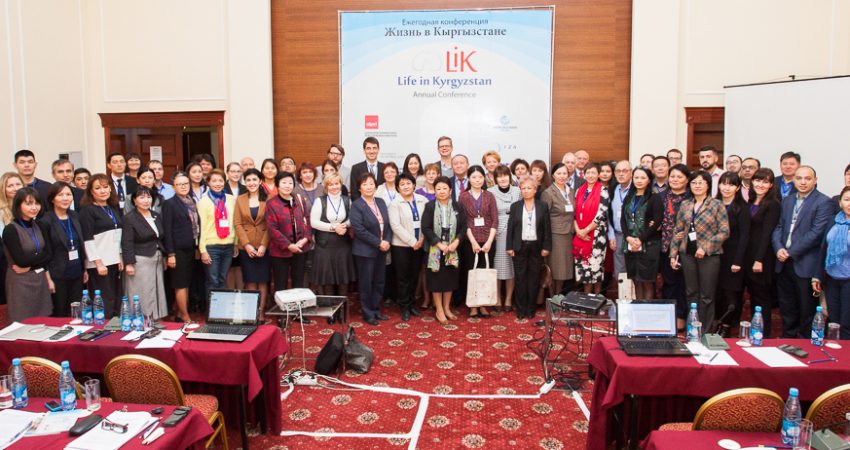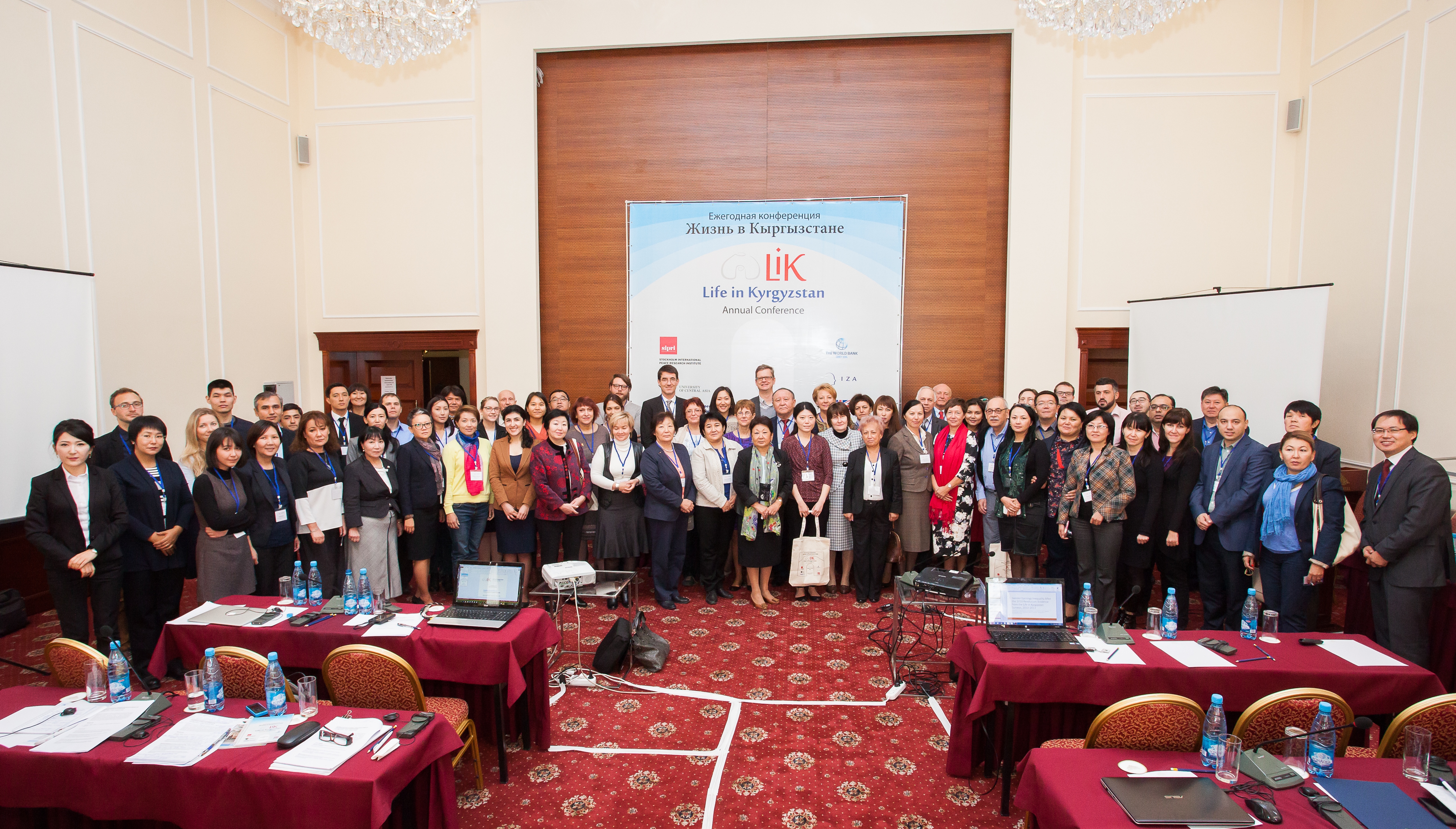LiK Conference 2015

 Annual ‘Life in Kyrgyzstan’ Conference
Annual ‘Life in Kyrgyzstan’ Conference
1-2 October 2015
Promoting Research and Evidence Based Policy-Making in Central Asia
The Stockholm International Peace Research Institute (SIPRI), ISDC – International Security and Development Center, and the University of Central Asia (UCA) conducted the first inaugural ‘Life in Kyrgyzstan’ Conference that took place in Bishkek on 1-2 October 2015.
The two-day conference brought together national and international experts from government and the public sector, development agencies, non-governmental organizations, academia and research institutions, and media to exchange knowledge and experiences on recent socio-economic developments in Kyrgyzstan and Central Asia, and to promote evidence-based policy making.
The conference also featured the results of the research project ‘Gender and Employment in Central Asia: Evidence from Panel Data’ carried out in 2013-2015 by an international consortium of research institutions with funding from the Institute for the Study of Labor (IZA) and the Department for International Development (DfID).
The following topics were covered by organized sessions of the Conference:
- Gender and Employment Nexus – Policies and Stakeholders Perspectives;
- Highlights from the “Gender and Employment in Central Asia” Project;
- Welfare, Social Protection and Labour Supply in Central Asia;
- Everyday Security Practices in Kyrgyzstan and Tajikistan;
- Labour Markets, Risk and Gender Attitudes;
- Regional Integration Issues;
- Mobility and Welfare;
- Food Security and Diversity in Central Asia;
- Micro-data in Central Asia: Issues and Gaps;
- Fisheries and Aquaculture Development in the Kyrgyz Republic;
- Food Prices and Welfare;
- Impact Evaluation of Peace-building Projects in Kyrgyzstan;
- Household Decisions and Child Health;
- Local Development Challenges.
The working languages of the conference were English and Russian.
The scientific and organizational committee of the conference included: Dr. Anastasia Aladysheva (SIPRI), Professor Kathryn Anderson (Vanderbilt University), Professor Tilman Brück (ISDC), Dr. Damir Esenaliev (SIPRI), Dr. Saida Ismailakhunova (World Bank) and Dr. Roman Mogilevskii (UCA).
The full program can be found here.
The conference brochure can be downloaded here in English [pdf-1.5mb] and in Russian [pdf-1.6mb].
Organising Institutions:
Stockholm International Peace Research Institute is an independent international institute dedicated to research into conflict, armaments, arms control and disarmament. Established in 1966, SIPRI provides data, analysis and recommendations, based on open sources, to policymakers, researchers, media and the interested public. Based in Stockholm, SIPRI also has a presence in Beijing, and is regularly ranked among the most respected think tanks worldwide. For more information on SIPRI, visit www.sipri.org.
Institute of Public Policy and Administration at the University of Central Asia was established in 2011 to strengthen public policy in Central Asia. It provides indepth analysis on current and emerging policy issues facing the region, and improves the analytical capacity of governments and civil society to use evidence in decision-making processes through professional development. The Institute has produced a series of peer-reviewed research papers on social and economic issues, public administration and public policy as they relate to Central Asia and Afghanistan. For more information on IPPA, please visit: http://www.ucentralasia.org/ippa.asp
ISDC – International Security and Development Center provides evidencebased analysis and policy advice on the interactions of security, conflict, violence and fragility with socio-economic development, growth, employment and poverty alleviation. ISDC is based in Berlin and collaborates with a broad range of partners in academia, policy making and practice. For more information on ISDC, visit www.isdc.org.
The World Bank is one of the United Nations’ specialized agencies, and is made up of 184 member countries. These countries are jointly responsible for how the institution is financed and how its money is spent. Along with the rest of the development community, the World Bank centers its efforts on the reaching the Millennium Development Goals, agreed to by UN members in 2000 and aimed at sustainable poverty reduction. One of the world’s largest sources of development assistance, the World Bank supports the efforts of developing country governments to build schools and health centers, provide water and electricity, fight disease, and protect the environment. For more information on the World Bank, please visit www.worldbank.org
